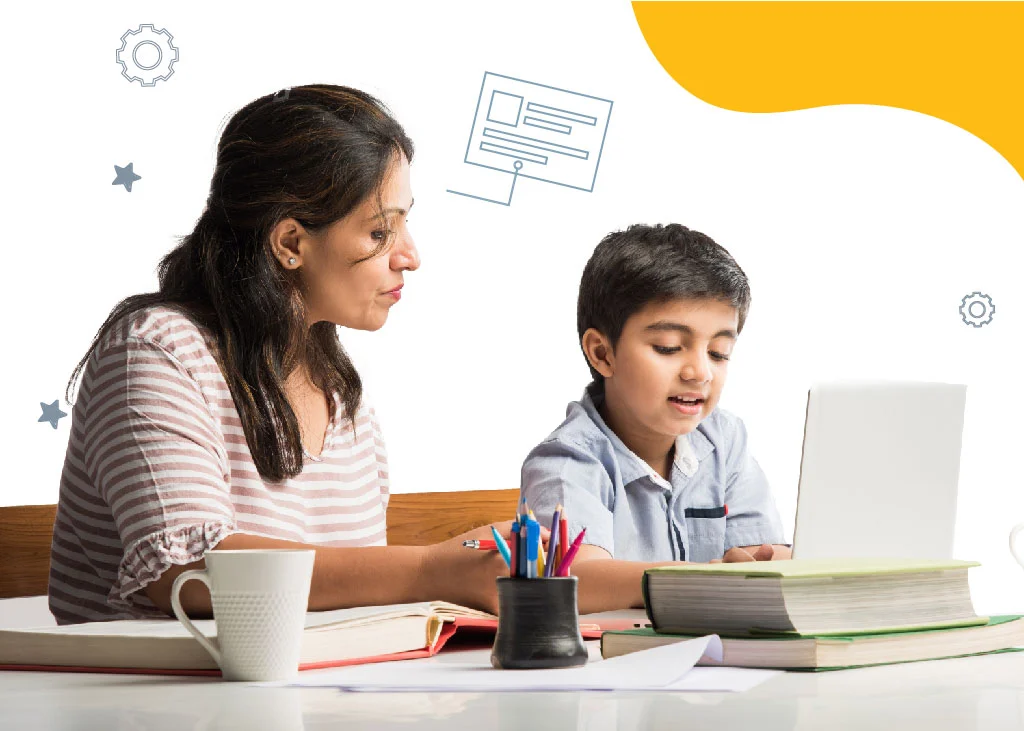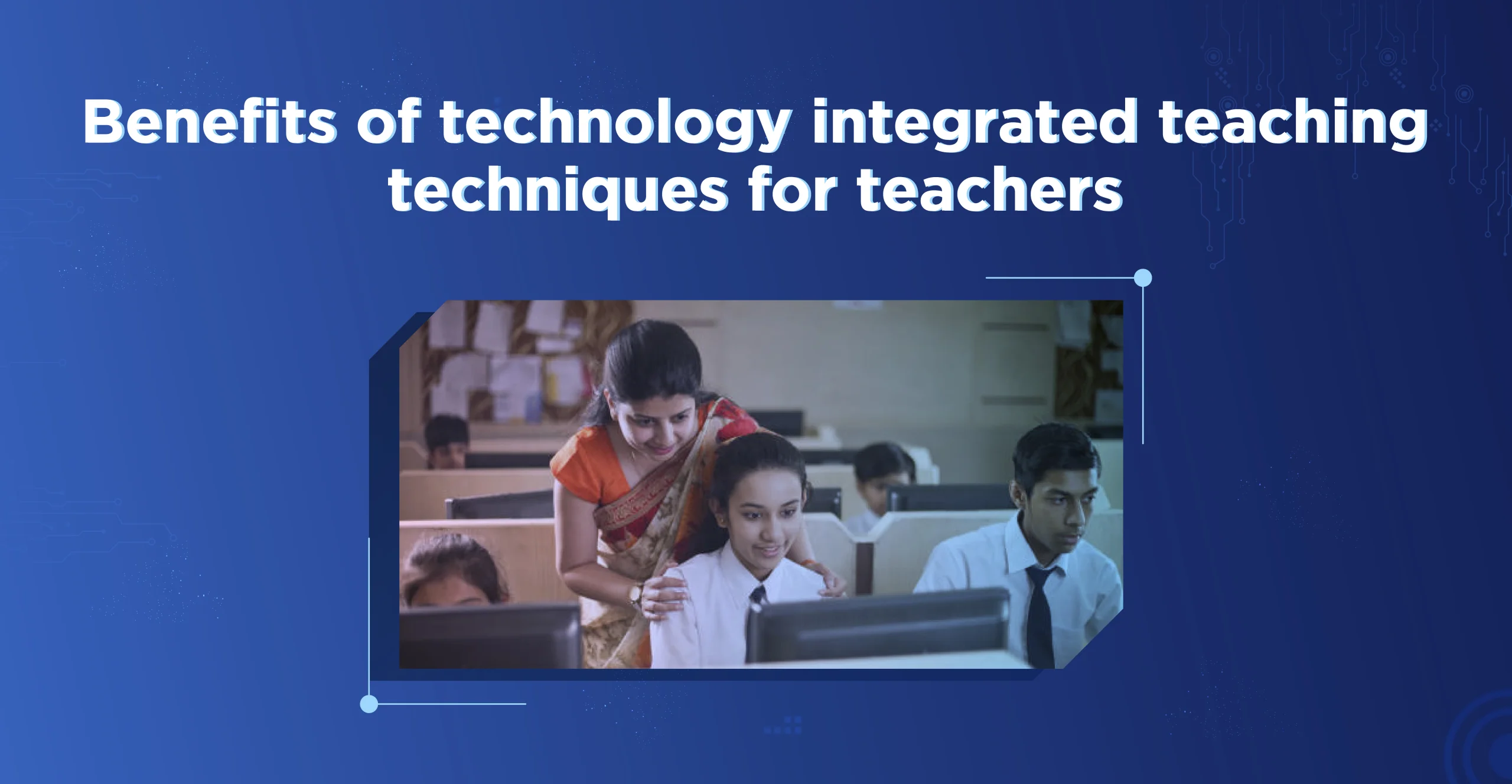No products in the cart.

In an era driven by technological advancements, teaching-learning methods in schools have improved not only physically, but digitally as well. Recent educational policies like the NEP 2020, focused on the holistic growth of students have made it imperative for schools to equip their students with 21st century skills, necessary to thrive in this digital landscape. The National Education Policy 2020 (NEP 2020) recognizes the significance of coding and skill development as a part of the school curriculum, developing approaches that integrate 21st-century skills into the curriculum. In light of this, coding in schools emerges as a key requirement in helping teachers promote cognitive development, critical thinking, and digital literacy in the classroom, thereby shaping future-ready students. Let's delve into the importance and benefits of coding in schools.
The Importance of Coding for Schools
With the rapid advancements in digital learning, there are a number of reasons why schools should teach coding. The primary factor is the integration of coding education, which has gained paramount importance in recent years. Coding in 21st century education isn't just about mastering computer languages; but about helping teachers foster computational thinking and problem-solving skills in the classroom. With emphasis given to experiential learning, schools need to focus on the skill development of students, aiding in the expansion of their skill-set and facilitating their overall growth and development.
Coding has become a necessary requirement in schools as:
- Coding has become an integral part of schools’ curricula
- Helps schools abide by educational policy guidelines
- It provides a transformative approach to classroom learning
- It promotes experiential learning in schools
The NEP 2020 recognizes coding as more than just a technical skill. It is a catalyst for cognitive development. Coding is important for students as it promotes experiential learning, where they learn by doing, fostering a deeper understanding of concepts taught in the classroom. This is a hands-on approach that helps schools transform passive learners into active problem solvers, enhancing schools’ curricula and taking it to a higher level.

How Coding Enhances Schools' Curricula
A good school is one that aligns its curriculum with the evolving changes in education. Coding is a powerful enhancer for a school’s curriculum, bridging the gap between theoretical knowledge and practical application. Incorporating coding into a school’s curriculum helps educators foster a deep connection between concepts taught in class and real-world scenarios. Moreover, project-based learning through coding has become an increasingly implemented method of the classroom teaching-learning process.
Coding enhances schools’ curricula by:
- Introducing digital learning tools and platforms
- Facilitating cross-disciplinary learning
- Increasing technological literacy
- Differentiating schools as leaders in education
By introducing coding as part of the curriculum, schools can infuse experiential learning into their educational approach, making the classroom teaching-learning process more engaging and relevant.

How Coding Helps Teachers Promote Digital Literacy in the Classroom
The question of ‘Why teachers need to learn coding’ is often asked when it comes to subjects related to computers and skill development. Digital familiarity is an imperative facet of the modern world, and teachers have a pivotal role in guiding students towards becoming digitally literate in the classroom. Teachers who learn coding can leverage technology to cultivate a comprehensive understanding of digital tools and platforms in the classroom, enabling and encouraging students to think critically and logically and helping them integrate coding and digital tools seamlessly into other academic subjects and real-world scenarios.
Coding helps teachers:
- Promote skill development in students
- Bring about the cross-curricular integration of subjects
- Enhance problem-solving and computational skills of students
- Promote 21st century skills in the classroom
With the help of coding, teachers can create a dynamic learning environment using quality teaching methods that nurtures 21st-century skills. Coding is not a single subject but an entry point to develop a range of proficiencies such as problem-solving, critical thinking, and collaboration. By using coding as a means to promote digital literacy in the classroom, teachers can develop 21st century skills in students and lay the foundation for them to excel in an increasingly digital world.

Benefits of Coding for Students and Teachers
The benefits of coding extend to both students and teachers alike. For students, coding equips them with 21st century skills that are not only relevant in today's digital age but are a necessity to excel in education and provide a competitive edge in future career opportunities. Coding nurtures computational thinking, which is an essential skill for overcoming complex problems and devising innovative solutions to any challenges.
Benefits of coding:
- Facilitates experiential learning
- Creates an engaging and interactive classroom
- Creates better job opportunities
- Boosts critical thinking and problem-solving skills
It's not only students who benefit from coding and skill development. Teachers also stand to gain from coding and programming. Through proper professional development and training in coding and development programs, teachers can incorporate coding into their teaching methodologies, enriching their classrooms with technology-integrated learning experiences. This, in turn, enhances the overall quality of teaching and education in schools.
Summary of the Importance and Benefits of Coding in Schools
In conclusion, coding isn't just about writing lines of code; it's about shaping the minds of future leaders. In the backdrop of NEP 2020, coding education has emerged as a cornerstone for skill development, computational thinking, and digital literacy. As schools endeavour to become NEP-ready institutions, coding plays an indispensable role in nurturing holistic development and 21st-century skills among students.
By integrating coding into the curriculum, schools empower students to become proactive learners who can decipher complex problems and create innovative solutions. Moreover, coding-driven education equips teachers with modern teaching methodologies, fostering a dynamic learning environment that caters to the needs of the ever-evolving digital landscape.
Schools understand that coding isn't just an educational trend; it's a pathway to prepare students for the challenges and opportunities of the future. As we move forward in the age of technology, coding education stands as a testament to the power of knowledge, innovation, and adaptability, that are at the core of education in NEP-ready schools.






In an era driven by technological advancements, teaching-learning methods in schools have improved not only physically, but digitally as well. Recent educational policies like the NEP 2020, focused on the holistic growth of students have made it imperative for schools to equip their students with 21st century skills, necessary to thrive in this digital landscape. The National Education Policy 2020 (NEP 2020) recognizes the significance of coding and skill development as a part of the school curriculum, developing approaches that integrate 21st-century skills into the curriculum. In light of this, coding in schools emerges as a key requirement in helping teachers promote cognitive development, critical thinking, and digital literacy in the classroom, thereby shaping future-ready students. Let's delve into the importance and benefits of coding in schools.
The Importance of Coding for Schools
With the rapid advancements in digital learning, there are a number of reasons why schools should teach coding. The primary factor is the integration of coding education, which has gained paramount importance in recent years. Coding in 21st century education isn't just about mastering computer languages; but about helping teachers foster computational thinking and problem-solving skills in the classroom. With emphasis given to experiential learning, schools need to focus on the skill development of students, aiding in the expansion of their skill-set and facilitating their overall growth and development.
Coding has become a necessary requirement in schools as:
- Coding has become an integral part of schools’ curricula
- Helps schools abide by educational policy guidelines
- It provides a transformative approach to classroom learning
- It promotes experiential learning in schools
The NEP 2020 recognizes coding as more than just a technical skill. It is a catalyst for cognitive development. Coding is important for students as it promotes experiential learning, where they learn by doing, fostering a deeper understanding of concepts taught in the classroom. This is a hands-on approach that helps schools transform passive learners into active problem solvers, enhancing schools’ curricula and taking it to a higher level.

How Coding Enhances Schools' Curricula
A good school is one that aligns its curriculum with the evolving changes in education. Coding is a powerful enhancer for a school’s curriculum, bridging the gap between theoretical knowledge and practical application. Incorporating coding into a school’s curriculum helps educators foster a deep connection between concepts taught in class and real-world scenarios. Moreover, project-based learning through coding has become an increasingly implemented method of the classroom teaching-learning process.
Coding enhances schools’ curricula by:
- Introducing digital learning tools and platforms
- Facilitating cross-disciplinary learning
- Increasing technological literacy
- Differentiating schools as leaders in education
By introducing coding as part of the curriculum, schools can infuse experiential learning into their educational approach, making the classroom teaching-learning process more engaging and relevant.

How Coding Helps Teachers Promote Digital Literacy in the Classroom
The question of ‘Why teachers need to learn coding’ is often asked when it comes to subjects related to computers and skill development. Digital familiarity is an imperative facet of the modern world, and teachers have a pivotal role in guiding students towards becoming digitally literate in the classroom. Teachers who learn coding can leverage technology to cultivate a comprehensive understanding of digital tools and platforms in the classroom, enabling and encouraging students to think critically and logically and helping them integrate coding and digital tools seamlessly into other academic subjects and real-world scenarios.
Coding helps teachers:
- Promote skill development in students
- Bring about the cross-curricular integration of subjects
- Enhance problem-solving and computational skills of students
- Promote 21st century skills in the classroom
With the help of coding, teachers can create a dynamic learning environment using quality teaching methods that nurtures 21st-century skills. Coding is not a single subject but an entry point to develop a range of proficiencies such as problem-solving, critical thinking, and collaboration. By using coding as a means to promote digital literacy in the classroom, teachers can develop 21st century skills in students and lay the foundation for them to excel in an increasingly digital world.

Benefits of Coding for Students and Teachers
The benefits of coding extend to both students and teachers alike. For students, coding equips them with 21st century skills that are not only relevant in today's digital age but are a necessity to excel in education and provide a competitive edge in future career opportunities. Coding nurtures computational thinking, which is an essential skill for overcoming complex problems and devising innovative solutions to any challenges.
Benefits of coding:
- Facilitates experiential learning
- Creates an engaging and interactive classroom
- Creates better job opportunities
- Boosts critical thinking and problem-solving skills
It's not only students who benefit from coding and skill development. Teachers also stand to gain from coding and programming. Through proper professional development and training in coding and development programs, teachers can incorporate coding into their teaching methodologies, enriching their classrooms with technology-integrated learning experiences. This, in turn, enhances the overall quality of teaching and education in schools.
Summary of the Importance and Benefits of Coding in Schools
In conclusion, coding isn't just about writing lines of code; it's about shaping the minds of future leaders. In the backdrop of NEP 2020, coding education has emerged as a cornerstone for skill development, computational thinking, and digital literacy. As schools endeavour to become NEP-ready institutions, coding plays an indispensable role in nurturing holistic development and 21st-century skills among students.
By integrating coding into the curriculum, schools empower students to become proactive learners who can decipher complex problems and create innovative solutions. Moreover, coding-driven education equips teachers with modern teaching methodologies, fostering a dynamic learning environment that caters to the needs of the ever-evolving digital landscape.
Schools understand that coding isn't just an educational trend; it's a pathway to prepare students for the challenges and opportunities of the future. As we move forward in the age of technology, coding education stands as a testament to the power of knowledge, innovation, and adaptability, that are at the core of education in NEP-ready schools.
